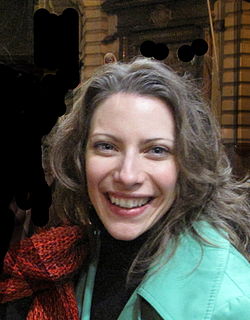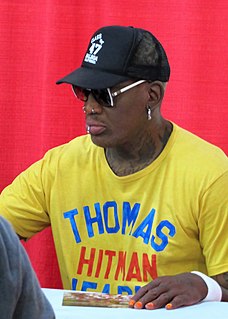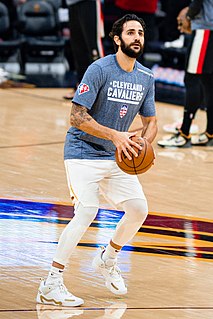A Quote by Al Horford
My biggest struggle was probably having to move from the Dominican to the United States to go to high school. Moving to Michigan, the weather, the language, I didn't speak English at all. That adjustment for me was difficult at the beginning.
Related Quotes
I think it's good for anybody to learn languages. Americans are particularly limited in that way. Europeans less so... We're beginning to have Spanish move in on English in the states because of all the people coming from Hispanic countries... and we're beginning to learn some Spanish. And I think that's a good thing... Only having one language is very limiting... You get to think that's the way the human race is made; there's only one language worth speaking... Well, this isn't good for English.
Dare I speak ,to oppressed and opressor in the same voice? Dare I speak to you in a language that will move beyond the boundaries of domination- a language, that will not bind you, fence you in, or hold you? Language is also a place of struggle. The oppressed struggle in language to recover ourselves, to reconcile, to reunite, to renew. Our words are not without meaning, they are an action, a resistance. Language is also a place of struggle.
Though representatives of many ethnic groups came together in the United States, English became their common language. Apparently, this was a natural choice. One can imagine what would have happened if members of each nation moving to the U.S. had spoken only their own tongues and refused to learn English.
English was my fourth language. I arrived, I enrolled in public school, as a child, I believe I was about six years old when we finally landed in Michigan. And I was initially put in special education because I couldn't quite wrap my mind around the English language because I was listening to Hungarian and Albanian and German. My mind broke down like I couldn't quite wrap my mind around the fourth language.
I have a funny relationship to language. When I came to California when I was three I spoke Urdu fluently and I didn't speak a word of English. Within a few months I lost all my Urdu and spoke only English and then I learned Urdu all over again when I was nine. Urdu is my first language but it's not as good as my English and it's sort of become my third language. English is my best language but was the second language I learned.
One of the nice things about the United States is that, wherever you go, people speak the same language. So native New Yorkers can move to San Francisco, Houston, or Milwaukee and still understand and be understood by everyone they meet. Right? Well, not exactly. Or, as a native New Yorker might put it, 'Wrong!'


































